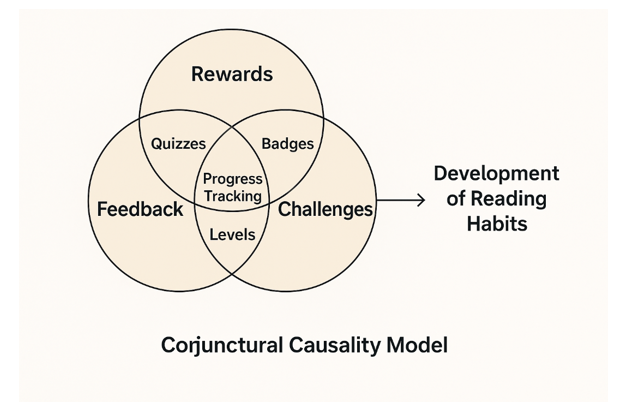Neutrosophic Causal Analysis of Gamification Strategies for Promoting Reading Habits in Eighth-Grade Students
Keywords:
Gamification, Reading Habit, Neutrosophic Set Theory, fsQCA, Educational MotivationAbstract
This study explores the connection between gamification elements and the development of reading habits among eighth-grade students through neutrosophic set theory and fuzzy-set qualitative comparative analysis (fsQCA). This investigation is different from previous ones because most studies focused on gamification fail to embrace the uncertainty and complexity of real life when it comes to generalizability. As a result, a neutrosophic framework was established for this study. To this end, 15 individuals answered a neutrosophic Likert scale questionnaire which resulted in a conglomerate of ratings that depicts their opinion on the gamified elements, technology use, and feedback loop systems afforded to them in the experience. Through fuzzifying the results, it became clear that one of the strongly relevant adjustments was that technology use and feedback loops generated more motivation to read than gaming elements alone. Ultimately, the pathways to developing reading habits exist in a conjunctural and equifinal manner no one has applied neutrosophic logic to the field of education with results that teachers can use to determine the best way to configure gamified reading experiences. Technology should be used as well as acknowledged and learners need to be flexible creatures on which design decisions are based to create a gamified experience that fosters adolescent reading habits.
Downloads

Downloads
Published
License
Copyright (c) 2025 Neutrosophic Sets and Systems

This work is licensed under a Creative Commons Attribution 4.0 International License.







